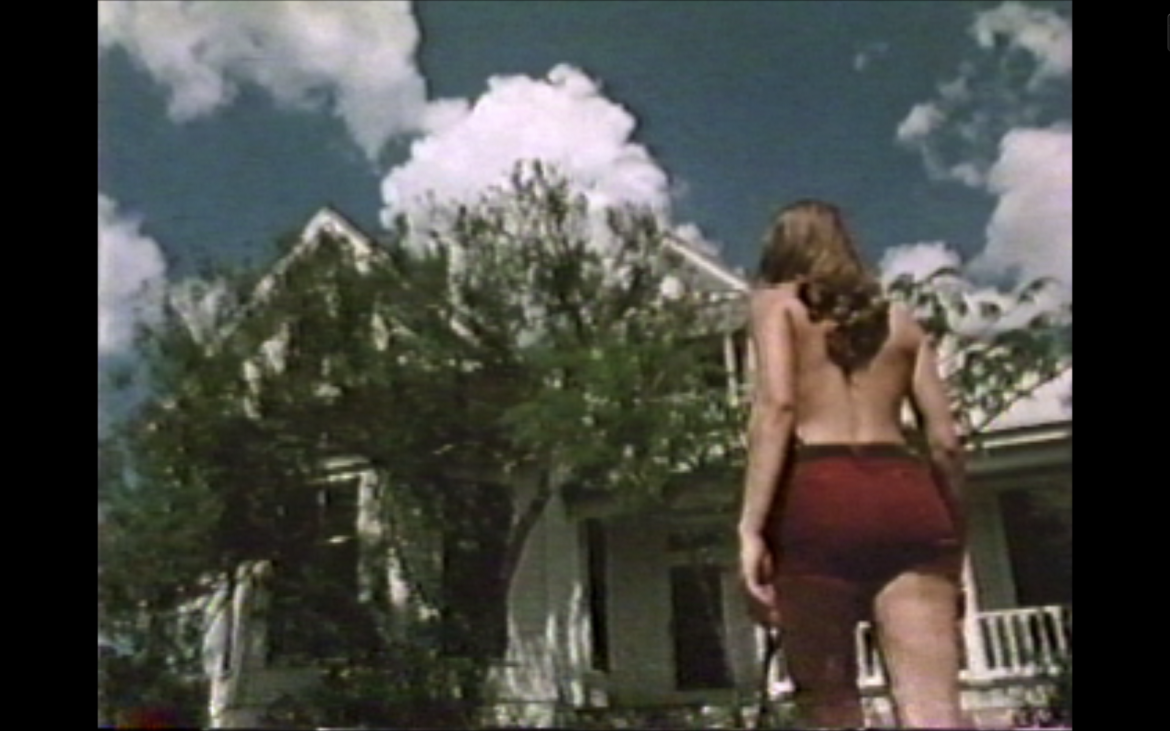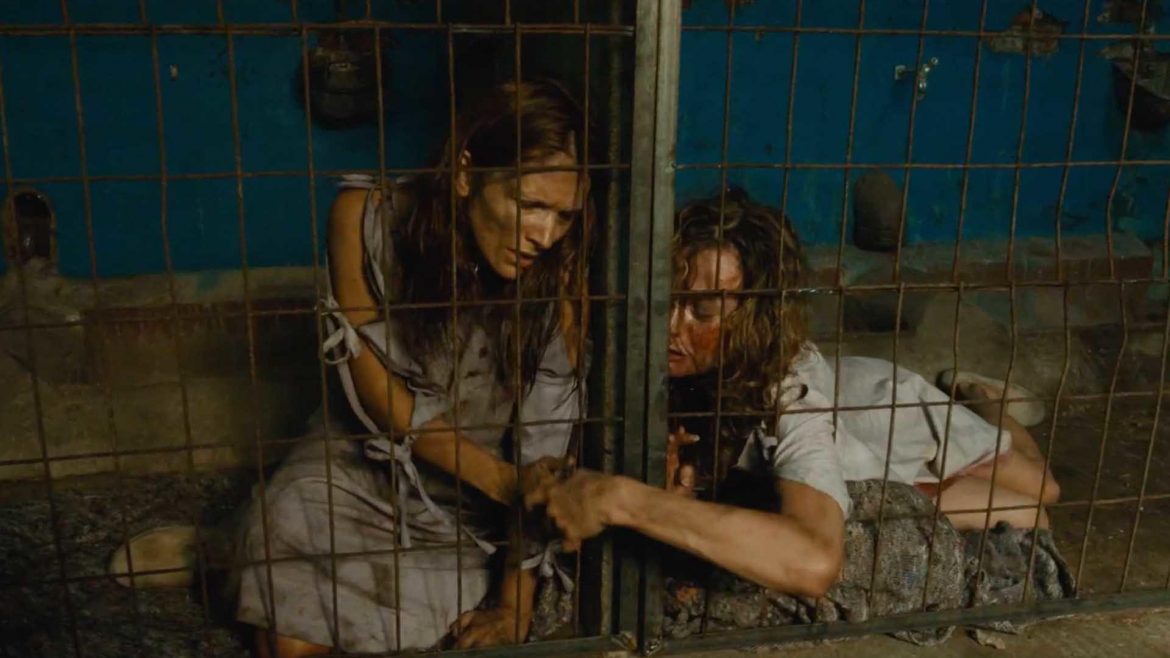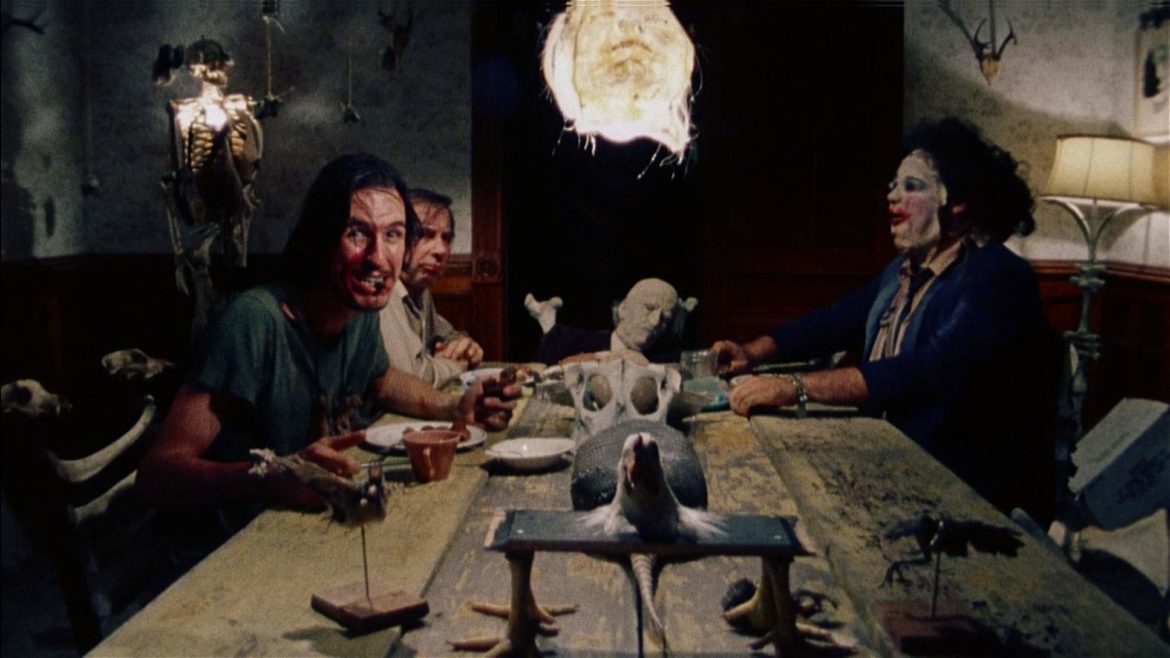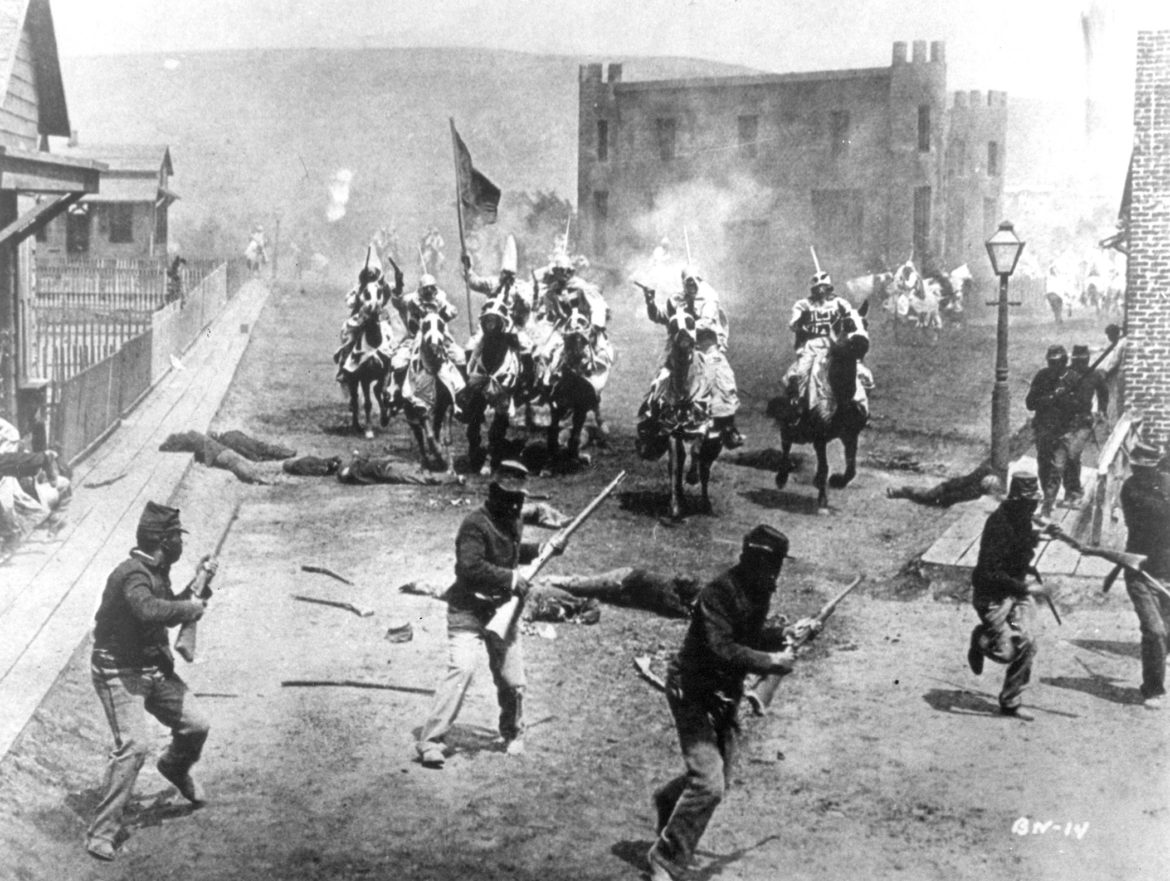Earlier entries in the Vegan Horror series have tended to focus on films with an animal rights subtext (even if their directors occasionally felt compelled to shout out, “It’s about meat”). The whole notion is founded on the idea of mining the signifiers to point out the underlying logic and related concerns.
Texas Chainsaw Massacre
When I began writing about horror cinema as a form of oblique artistic grappling with our real-life treatment of nonhuman animals, it was with enthusiasm and several convictions. First, that this approach would merge two of my primary interests, philosophical issues of animal rights and their aesthetic representation and also scary movies.
If we’re going to talk about vegan subtexts in horror cinema, we eventually are going to have to talk about The Texas Chainsaw Massacre, the macabre granddaddy of the trope.
Held up as “the ultimate pro-vegetarian film”, trumpeted by the perpetual attention-seekers and noted film critics at PeTA (in a list that also includes Lloyd Kaufman’s Poultrygeist: Night of the Chicken Dead, which is not quite as bad as ThanksKilling but still among the worst movies I’ve ever seen), and a mainstay of thinkpieces featuring “films with hidden activist agendas,” the subtext of Tobe Hooper’s horror classic is already well-established.
Many horror and sci-fi films play with themes drawn from our treatment of nonhuman animals and the natural world. From the Night of the Living Dead to the Texas Chainsaw Massacre movies, and on through pure exploitation and extreme cinema, the subtexts are often hard to miss — a focus on vulnerability, powerlessness, instrumental use.
A recent episode of the excellent We Love To Watch podcast focused on Motel Hell, a quite poor film with fascinating subtexts. It got me thinking about the prevalence of animal rights themes in film, and in horror specifically. Horror’s fixation on the notion of the human and the nonhuman provides a kind of secret key to understanding an unease at the root of modern existence.
Part of an ongoing effort to watch each of the films in Roger Ebert’s Great Movies series. The introduction and full list can be found here.
“The past is never dead. It’s not even past.” – William Faulkner
It’s hard to figure out how to approach The Birth of a Nation, released 100 years ago this month.






